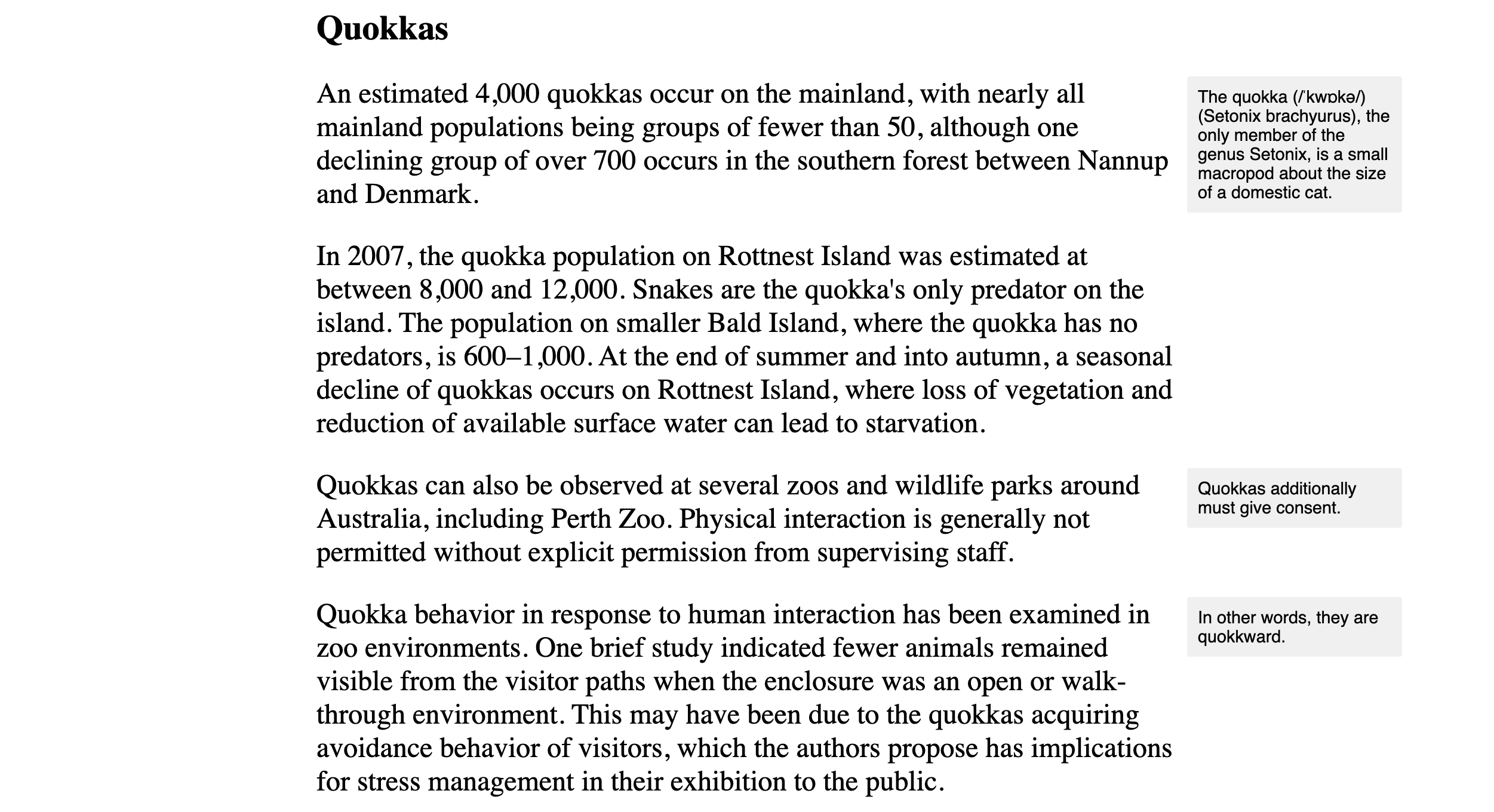CS 347: Lab 9 – Margin Notes
Welcome to lab. By now you have already watched the lecture videos on your own. Now we will apply the ideas from those videos in a handful of exercises, which you will complete in small groups.
Within your breakout room, designate one of your team to be the screen sharer. Screen sharer, share your screen and claim your group’s task on Crowdsource. Make sure to enter every group member’s JMU eID so that they receive credit. Your group will be assigned a task number.
Team, complete the assigned task below. Screen sharer, be careful not to dominate. All members should contribute ideas.
Task
Recreate the following page using an internal stylesheet:

Use the following text:
Quokkas An estimated 4,000 quokkas occur on the mainland, with nearly all mainland populations being groups of fewer than 50, although one declining group of over 700 occurs in the southern forest between Nannup and Denmark. The quokka (/ˈkwɒkə/) (Setonix brachyurus), the only member of the genus Setonix, is a small macropod about the size of a domestic cat. In 2007, the quokka population on Rottnest Island was estimated at between 8,000 and 12,000. Snakes are the quokka's only predator on the island. The population on smaller Bald Island, where the quokka has no predators, is 600–1,000. At the end of summer and into autumn, a seasonal decline of quokkas occurs on Rottnest Island, where loss of vegetation and reduction of available surface water can lead to starvation. Quokkas can also be observed at several zoos and wildlife parks around Australia, including Perth Zoo. Physical interaction is generally not permitted without explicit permission from supervising staff. Quokkas additionally must give consent. Quokka behavior in response to human interaction has been examined in zoo environments. One brief study indicated fewer animals remained visible from the visitor paths when the enclosure was an open or walk-through environment. This may have been due to the quokkas acquiring avoidance behavior of visitors, which the authors propose has implications for stress management in their exhibition to the public. In other words, they are quokkward.
Follow these guidelines in your solution:
- The main text has a width of 800 pixels.
- The main text is centered horizontally in the page.
- The margin notes have a width of 200 pixels.
- The margin notes are anchored against their containing paragraphs.
- The gap between the main text and the margin notes is 10 pixels.
Screen sharer, when your group is done or when time is up, submit your group’s solution on Crowdsource.
Peer Review
After you have finished and submitted the exercise, transition into your peer review for project 1. The following things should happen: